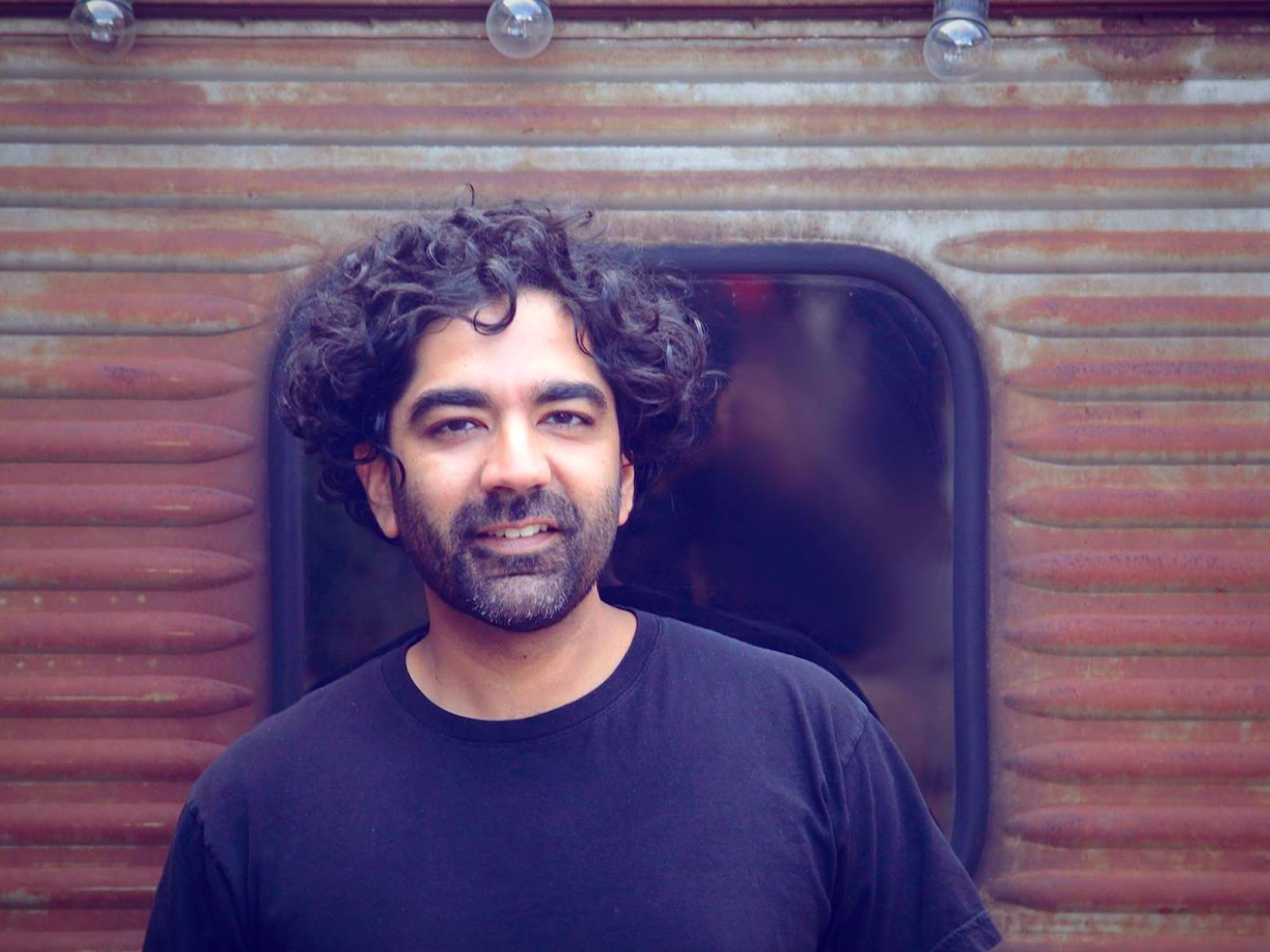
Interview with Paolo Caiolo on Berlin’s Der Goldene Hahn
In a brief interview with restaurateur Paolo Caiolo, The DJ Cookbook explores the former-Chef’s passion for food and its fine tuned intersection with the Berlin music scene through the story of Der Goldene Hahn -his restaurant of 17-years. “The Hahn”, as called by many, serves as a dining room table for countless traveling DJs. Be it the cavernous warmth of the space, the budget allotted for purchasing new vinyl to be played during service, or maybe the elegant food, are the characteristics that make this place, and what happens within, stand out.
Caiolo, an Italian native but a Berlin enthusiast, is the owner of three restaurants that well represent the gastronomical diversity and richness of Italian cuisine in Berlin. From pizza joint (Fratelli la Bionda) to wine bar (Gallina) to fine dining (Der Goldenen Hahn), this businessman brings to the table what few restaurants around the world are able to do: foreign food + eclectic, well-savored music along with a strong sense of respect for the community that hosts him.
Q: Paolo, what is your relationship with the space that Der Goldene Hahn is in? How did you end up here and how does the concept of your restaurant tie into the strong musical identity of Berlin?
A: I am simply lucky. I started out as the Executive Chef of this space before ever dreaming of owning it. I bought the place from Dimitri Hegemann, the creator of Tresor, the nightclub.
The place has barely been remodeled since, the only thing that’s been removed has been the big Tresor graffiti that was sprayed on the wall, but even the Technics turntables are Tresor originals.
The place started out as a bar but in 1996 when I came, Dimitri was looking to serve food and given that all I knew how to cook was Italian food I asked him if he would be into the idea. He then asked me if I wanted to buy it and I said it was my dream. In July of 1997 the place was mine.
Q: How does playing vinyl fit into the space and the atmosphere that you are trying to create?
A: Playing vinyl is warmer than digital. It’s another sound. The system 1210 from Technics is simple, but meshes well with the brick walls. This intimate space is designed for analog sound. Overall, it is important that my costumers must go to bed together after eating at my restaurant, and music along with good food can help facilitate that.
Q: What type of music does one hear at the Der Goldene Hahn?
A: With food you must listen to ballads, slow jams. Some artists we listen to while eating are Tim Hardin, Lou Reed, Nick Cave. For the most part we like happy, mellow, sexy, and sometimes edgy music because we must recognize that we like to drink wine. At Der Goldene Hahn we care about wine. I like white, bubbly wine from Franciacorta, Italy.
Q: What are your favorite wines?
A: I prefer Piedmontese wines like Barbera and Barolo and white wine from Friuli.
Friuli region has very dry minerals under the ground. It goes amazing with fish.
We have 200 wines on the menu, a little too much, but I love wine. In Italy we have around 1200 different grapes.
Q: How would you describe the ingredients and food here?
A: The food is hand made that is why it’s so special. Both bread and pasta are made in house. Food here is filled with the energy of my hands and of the hands of my Chef. Our food is sincere, treated with care and love; and although our ingredients are standard we don’t open a single can to make it.
Q: What is your take on Berlin?
A: Berlin is the most liberal city we have in Europe and that is why I came here: for self-expression. I applaud the German people for the peace and unity that this city symbolized after the unification. It’s a really creative place.
Q: Do you consider yourself a Berliner?
A: I’ve been here for 30 years almost like a Berliner, but I can’t really say that!
Q: We know that food is a strong part of your identity given you trained as a Chef, but how does music tie into it all?
A: I’ve loved music all my life, when I was a child I felt unlucky because I wasn’t black, my dream was to have a big afro, but alas… Growing up in the 60’s and 70’s the two competing sounds in Italy were “Black music” and Napolitan music, today we know which won.
- Der Goldenen Hahn
- Pücklerstraße 20, 10997 Berlin, Germany
- +49 30 6188098
- Fratelli la Bionda
- Bergmannstraße 31, 10961 Berlin, Germany
- +49 30 63901770
- Gallina
- Pücklerstraße 20, 10997 Berlin, Germany
- +49 30 41766550














